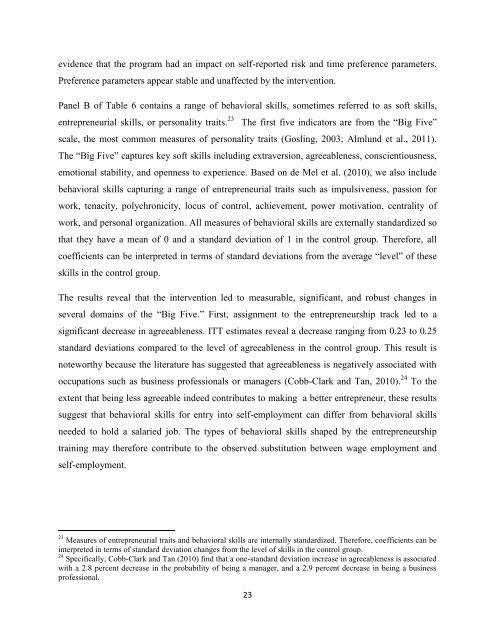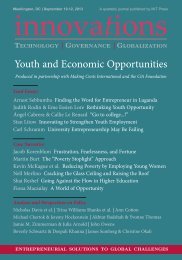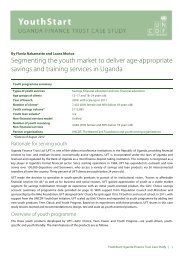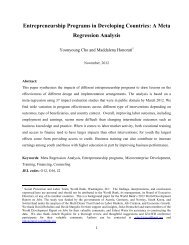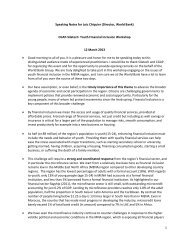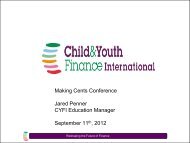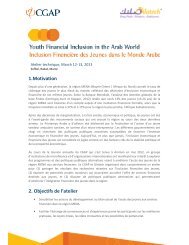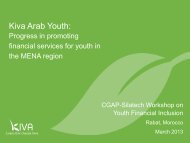Download - Youth Economic Opportunities
Download - Youth Economic Opportunities
Download - Youth Economic Opportunities
Create successful ePaper yourself
Turn your PDF publications into a flip-book with our unique Google optimized e-Paper software.
evidence that the program had an impact on self-reported risk and time preference parameters.Preference parameters appear stable and unaffected by the intervention.Panel B of Table 6 contains a range of behavioral skills, sometimes referred to as soft skills,entrepreneurial skills, or personality traits. 23 The first five indicators are from the “Big Five”scale, the most common measures of personality traits (Gosling, 2003; Almlund et al., 2011).The “Big Five” captures key soft skills including extraversion, agreeableness, conscientiousness,emotional stability, and openness to experience. Based on de Mel et al. (2010), we also includebehavioral skills capturing a range of entrepreneurial traits such as impulsiveness, passion forwork, tenacity, polychronicity, locus of control, achievement, power motivation, centrality ofwork, and personal organization. All measures of behavioral skills are externally standardized sothat they have a mean of 0 and a standard deviation of 1 in the control group. Therefore, allcoefficients can be interpreted in terms of standard deviations from the average “level” of theseskills in the control group.The results reveal that the intervention led to measurable, significant, and robust changes inseveral domains of the “Big Five.” First, assignment to the entrepreneurship track led to asignificant decrease in agreeableness. ITT estimates reveal a decrease ranging from 0.23 to 0.25standard deviations compared to the level of agreeableness in the control group. This result isnoteworthy because the literature has suggested that agreeableness is negatively associated withoccupations such as business professionals or managers (Cobb-Clark and Tan, 2010). 24 To theextent that being less agreeable indeed contributes to making a better entrepreneur, these resultssuggest that behavioral skills for entry into self-employment can differ from behavioral skillsneeded to hold a salaried job. The types of behavioral skills shaped by the entrepreneurshiptraining may therefore contribute to the observed substitution between wage employment andself-employment.23 Measures of entrepreneurial traits and behavioral skills are internally standardized. Therefore, coefficients can beinterpreted in terms of standard deviation changes from the level of skills in the control group.24 Specifically, Cobb-Clark and Tan (2010) find that a one-standard deviation increase in agreeableness is associatedwith a 2.8 percent decrease in the probability of being a manager, and a 2.9 percent decrease in being a businessprofessional.23


